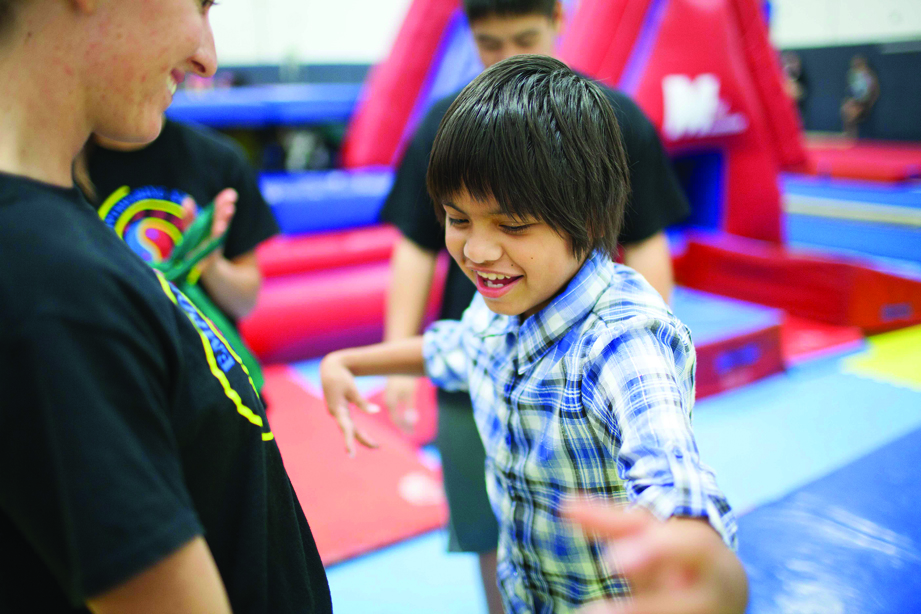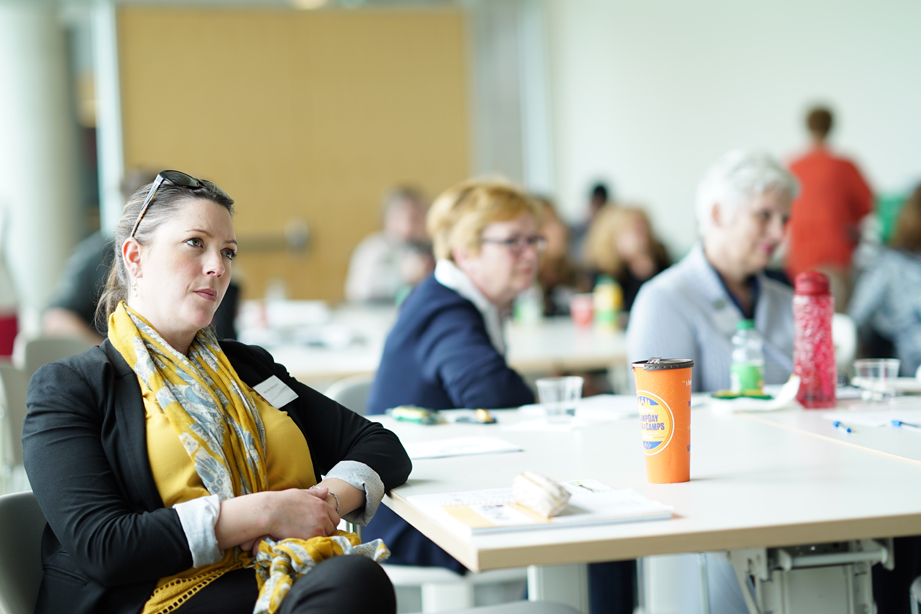Cycle II – Strengthening Connections
Cycle II was characterized by incorporating new cross-cutting themes that expanded the scope of the Network’s activities. More specifically, to promote change for children with neurodevelopmental disabilities and their families, attention was focused on the child’s critical role and family’s social environment as a predictor of outcomes. Also, new initiatives were introduced to address issues that are common across virtually all neurodevelopmental disabilities. These include comorbidities such as sleep disruption and the fragmented systems of support that families struggle to navigate.
In 2016, a second strategic planning exercise initiated by the Board of KBHN to set the direction for the final three years of Cycle II confirmed the Network’s commitment to applied research, addressing the three significant challenges and working closely with partners.
As part of this process, KBHN conducted an in-depth stakeholder needs assessment and priority setting analysis. This exercise, which engaged the Network’s three primary audiences (policymakers, frontline workers/practitioners, and parents/caregivers of children with neurodevelopmental disabilities), resulted in the identification of 44 needs, grouped into nine thematic areas. The Network then conducted a Canada-wide survey that asked stakeholders to rank these 44 needs in order of priority. This approach enabled KBHN to evaluate its current and future objectives against stakeholders and knowledge users’ most pressing needs. Five of the ten top priority areas identified by the national survey were judged to fall within the scope of KBHN’s areas of research focus and capacity to effect change: reduction/removal of barriers to diagnosis; non-categorical treatment for functional deficits; early diagnosis for targeted supports; more efficient use of resources; and specialized in-depth training for educators. This knowledge has been used to guide decision-making, with the majority of subsequent KBHN research programs addressing these needs.
In 2017, KBHN launched a second Cycle II Request for Applications (RFA) for new research projects. The objective of this RFA was to identify and support projects that built on existing research conducted in the Network or elsewhere, which could demonstrate substantive progress toward national impact in the near term. A total of 55 proposals were received and reviewed by a peer-review panel made up of the Research Management Committee (RMC) and the International Scientific Advisory Committee (ISAC). Out of this vital group of proposals, KBHN selected ten projects. This RFA brought new investigators and new partners into the Network, contributing to KBHN exceeding its Cycle II targets for both the numbers of funded researchers and research projects, as well as the total value of partnership support.
Building Canada’s future capacity for research in neurodevelopmental disabilities through training Highly Qualified Personnel (HQP) has been a significant focus of KBHN’s activities and a source of meaningful innovation. Beginning in Cycle II and reflecting the increasing emphasis on implementation, KBHN took a new approach of engaging frontline service workers, educators, and parents as crucial members within research teams, in addition to trainees. Knowledge translation and mobilization products were created, including training manuals and workshops to transfer skills and knowledge, increase capacity across service sectors, and empower parents and caregivers to contribute to their children’s development. This approach reflects the adoption of the Co-Produced Pathway to Impact framework (see Strategic Plan, Knowledge and Technology Exchange and Exploitation (KTEE), in which new knowledge is co-created by researchers working together with implementation partners who then put the new knowledge into action.
The Better Nights, Better Days Project Helping Children with Neurodevelopmental Disorders Sleep Better
Challenge Up to 90% of children with neurodevelopmental disorders (NDDs) [...]
Physical Activity Strategies to Enhance Children’s Development
Challenge Raising children with neurodisabilities is often isolating and stressful [...]
Genomics/Epigenetics of CP in Preterm-born Infants
Challenge Premature infants are the largest subgroup of children with [...]
Connecting Families to FASD Support
Challenge Families and individuals with FASD often struggle when it [...]
Development of a Genomic Assessment Tool for Early Identification of Infants and children at risk for FASD
Challenge Fetal alcohol spectrum disorder (FASD), which results from prenatal [...]
Integrated Navigational Support for Families of Children with Neurodevelopmental Disabilities
A Pilot in Alberta, British Columbia and the Yukon Challenge [...]







